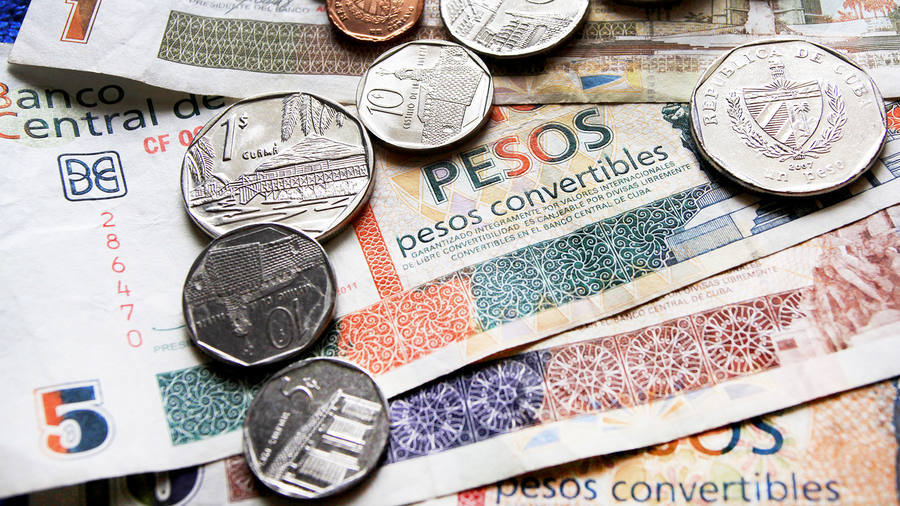Photo by Peter Zimmermann via Getty Images
Cuban ministers have said that Government is monitoring closely public concerns about the impact of currency unification on prices and wages and have stressed that, where possible, remedial action will be taken to ensure fairness.
Speaking on the flagship Television programme Mesa Redonda – the principal vehicle for ministers to explain the reform process and the adjustments being made – Marino Murillo, the Head of the Commission for the Implementation and Development of the Guidelines, said that the impact of the reforms is being “closely followed by the population” and that it was important to take stock of what has happened.
Making clear the willingness of the Government to review every opinion expressed, he warned however that since the process involves the elimination of the CUC, a single exchange rate, the removal of subsidies, and the reform of income, pensions and social security, any changes that might be made must apply to the whole of Cuban society, making adjustments not easy.
“In the economy, you make a mistake today and the consequences are not seen tomorrow or the day after, it has an inflationary rebound in three or four months”, he said in defence of the short-term impact that unification has had on prices and in response to concerns posted widely on social media and state websites.
In his remarks, Murillo, one of the principal architects of the process, said that the days following currency unification had confirmed the complexity of the process.
He explained that the ‘monetary reordering task’ (Ordenamiento Monaterio) – the expression used by government – had been made more difficult as it was taking place against the backdrop of a pandemic, the strengthening of US embargo, an international economic crisis, and the slowing of trade flows, all of which were limiting the country’s foreign currency income.
“If we place ourselves in the position of the limitations that the country has, which are true, but we do not stand in the position that the country must be run in a totally different way, then we would have no solution to the issue”, he said.
In his remarks, Murillo stressed that only by having a different focus on the country’s business system and the actors in the economy who produce wealth, can a better environment for all be created. He conceded, however, that when it came to food prices, increases in wholesale prices had rapidly effected what Cubans were paying.
Observing that the situation was expected to improve during February as “price corrections” being made by national and provincial government take effect, he said that he expected the early imbalance between prices and wages to be rectified and “change that perception a bit”. He acknowledged that in some situations “explanations to workers have not been good”.
Also speaking on the same programme about the widespread concern about the price of food and other essentials, the Minister of Finance and Prices, Meisi Bolaños, told viewers: “It is inevitable that prices will grow, but they must be applied correctly, as well as the associated costs and expenses”. She confirmed, however, that “due to its high social sensitivity, the pricing policy applied …. is subject to a process of review and analysis”. This, she said, will seek to reconcile a company’s ability to make profits and offer Cubans acceptable prices.
Stressing that the reforms will enable a transformation in the economic performance of companies and that they must now deliver greater efficiency and productivity, she said that this would in the medium term, “generate greater wealth and well-being” for all Cubans.
In another part of the same programme broadcast over two nights, Murillo noted that one of the problems that had arisen was that some state enterprises had simply multiplied all their prices, not considering existing stocks or other economic factors.
Then in something close to an apology, he said, “we would have liked nothing to be announced that we had to rectify, but things are happening, there are characteristics of each territory, which have been reviewed, and there are many actors involved”.
Responding to other concerns including the impact of the reforms on the country’s politically important social provision, Murillo reaffirmed that “these aspects of the Cuban Revolution will not be lost”.
“We always said that the Ordering Task is an adjustment, although not with the savage laws of the market or brutal capitalism, but a devaluation always brings an adjustment”, he told Mesa Redonda’s viewers.
Much of what was said over the course of the two lengthy broadcasts pointed to the difficulty Cuban Ministers and officials are having in explaining market economics and market behaviour in a country that has been used to decades of subsidies, state salaries that provided little incentive to work, and working methods that favour inefficiency and bureaucracy. It suggests that Cubans will require an agile response and more convincing that the challenge of undertaking the much delayed economic reforms at a time of continuing shortages are worth the pain of the medium to long term gains.
The Caribbean Council is able to provide further detail about all of the stories in Cuba Briefing. If you would like a more detailed insight into any of the content of today’s issue, please get in touch





